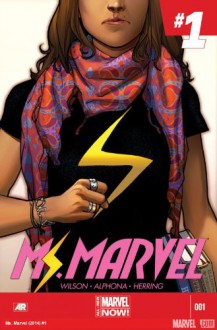Like, we're told that superheroes are not real, but we're not told that portraying every Muslim or Middle Eastern character as a terrorist equally unreal.
We're not told that a female character is make-believe when she is only ever shown talking to men or to other women about men.
- Mike Rugnetta, PBS Idea Channel's How is Ms. Marvel Changing Media for the Better?
This doesn't only apply to damaging portrayals of marginalized people, but also to the glamoring of unhealthy/abusive relationships in media.
Time and again, I see people defend problematic relationship dynamics in fiction, especially romance, claiming "we all know it's fiction," but do we really?
Are we sure we're immune to the constant bombardment of media where aggressive, overbearing, often abusive men are worshiped and show as desirable? Where female characters are forced to give in to these men, and give up pieces of themselves in order to obtain love, and acknowledgement.
When portrayals of healthy, balanced relationships where men are thoughtful about, listen to, and value what women have to share are rare and difficult to find. Where men who take a supporting role in the lives of the women they love are often the butt of jokes in popular media, where they are often portrayed as weak, "whipped," and undesirable.
Can we really say that it doesn't affect us?
Can we really believe it isn't affecting young girls and how they view their own relationships?
That is not to say young girls are not smart, and media savvy, but we can't expect them to know this stuff instinctively, especially when they're faced with the contradictory messages every damn day. We can't expect someone who's only experience with cars is watching car chases in action movies to just climb behind the wheel of a car and drive safety. So it is unfair and unrealistic to expect girls, or even boys for that matter, to inherently understand how to separate fact from fiction, especially when many dysfunction fictional relationships they see resembles ones in their own lives.
We don't give them the tools to identify and avoid abuse, dehumanizing behavior, because we're too busy celebrating it.

 Log in with Facebook
Log in with Facebook 






